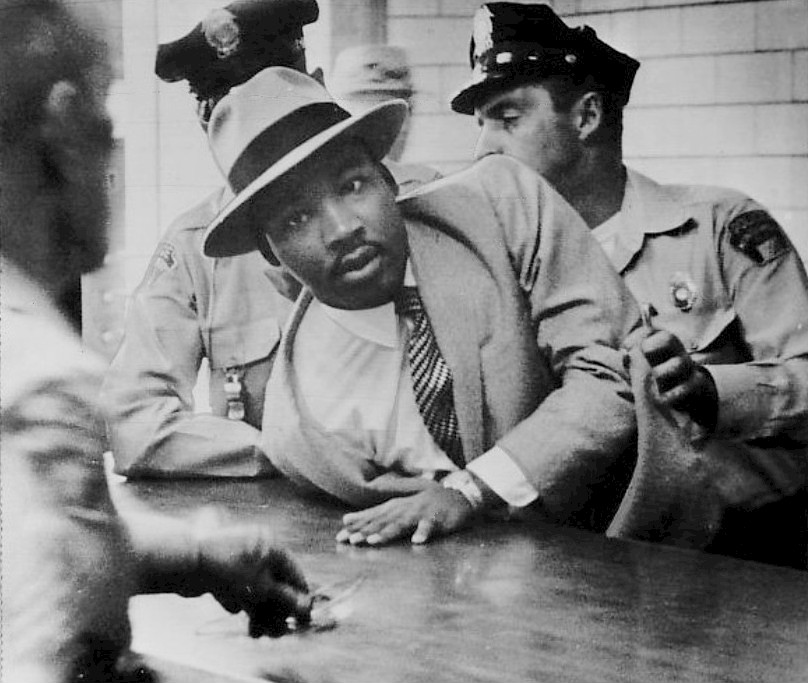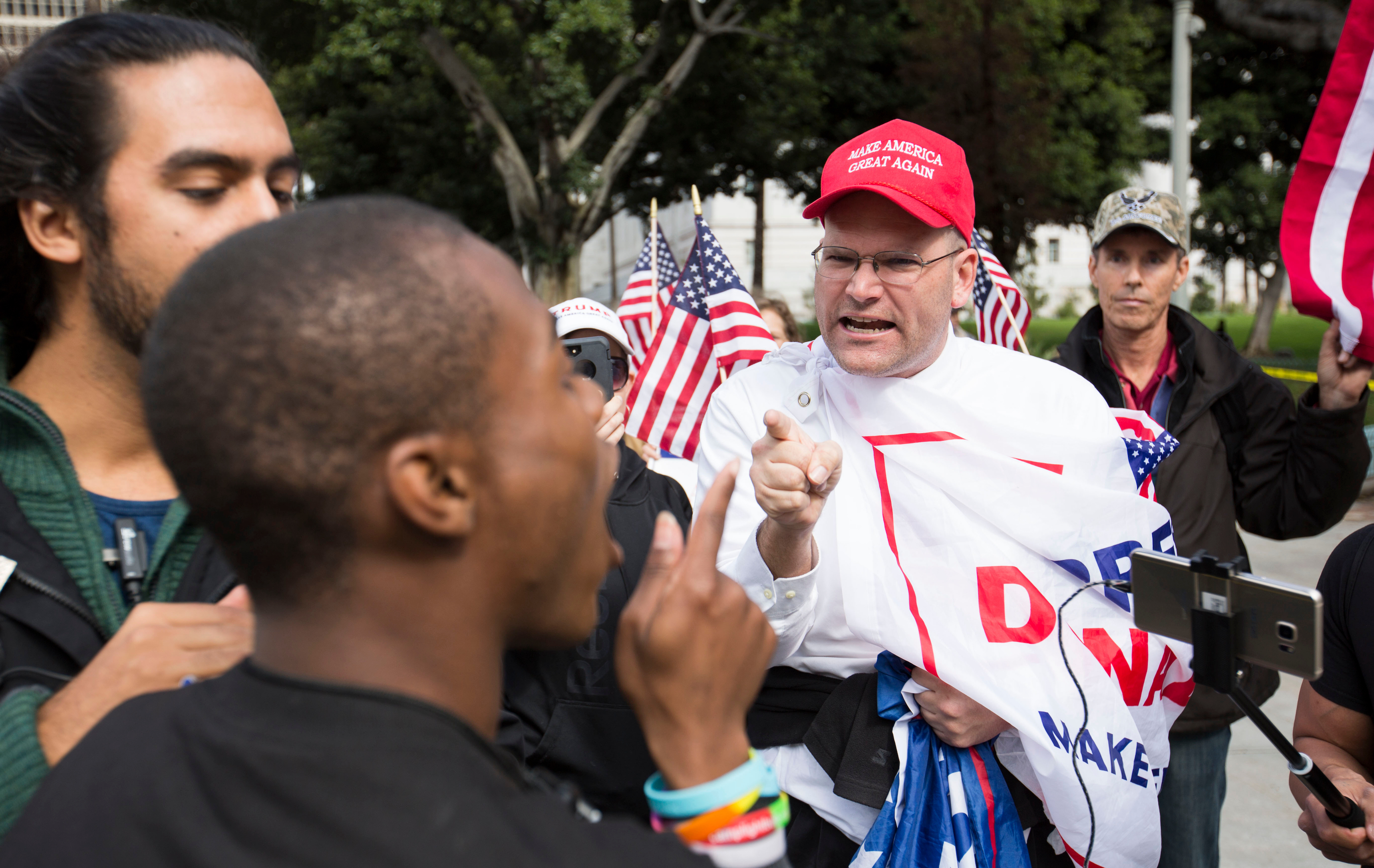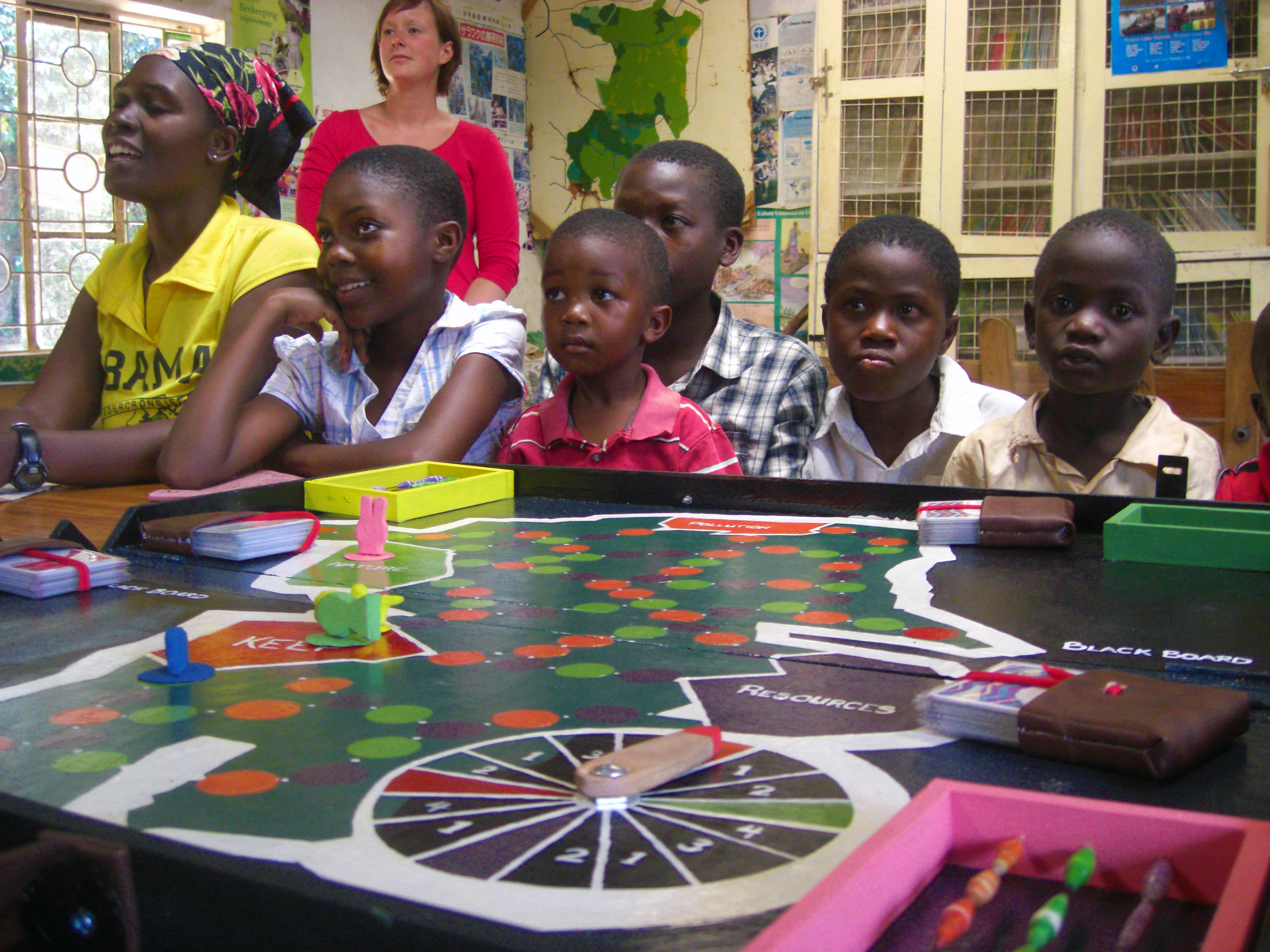People like to cite Martin Luther King’s statement from his “I Have a Dream” speech about judging people not by the colour of their skin but by the content of their character. It’s usually taken out of context by right-wing radio hosts like Glenn Beck. But one of the things Martin Luther King certainly wasn’t was “post-racial”. He spent his whole life fighting racial inequality. People just don’t want to see race. They don’t want to see difference. And that’s a problem.
Black radicalism and the “post-race” society
Professor of Black Studies
- Advocates of the “post-racial” society imagine that racism is a prejudice that can be eliminated. They fail to see that the system itself is racist.
- We talk about race and racism a lot these days. But we tend to do it in ways that misunderstand these concepts or pretend they don’t exist.
- The premise of Black radicalism is that the current political-economic system cannot be reformed. Regions like Africa need to establish their own economic system to meet the needs of their communities.
Misconstruing MLK
A post-race world is one in which we move beyond racism. Advocates of this scenario suppose that we can legislate racism away.
The term “post-racial” has been commonly used in America since the 1990s. It’s particularly popular with right-wing Americans who feel like we’ve done enough to solve racism. ‘We don’t need any more affirmative action.’

Photo of Dr. Martin Luther King, Jr. being arrested in Montgomery, Alabama, for "loitering" in 1958. Wikimedia Commons. Public Domain.
Silence in Europe
One legacy of the Holocaust is that Europeans find it really difficult to talk about race. They prefer to talk about concepts like ethnicity. When I go to France or Germany and start talking about Blackness, it makes people uncomfortable. ‘We don’t want to talk about that,’ they say. ‘We can’t talk about race and racism. That’s a Nazi thing.’
That’s why most countries in Europe don’t collect data on race. The fact that I can’t really give you any statistics on racism in France and Germany should terrify us because we just don’t know the scale of the problem.
Race has underpinned our political-economic system since 1492. There’s never been a time when we’ve moved beyond race because race glues the whole system together. The only way to move beyond race would be to move beyond the system.
How we talk about race
If there is racism, there must be race. Not talking about race, or denying it exists, makes it much more difficult to address racism.
Of course, there are plenty of bad ways to talk about race. “Post-racialism”, for example, is premised on the idea that racism has gone away. ‘We’ve had a Black president so we don’t need to talk about race anymore.’ That’s one bad way to talk about race. The Ku Klux Klan talk about race more than anybody else; I don’t think we would say that’s a good way to talk about race.
It really comes down to how we talk about race and how we understand it. We’re talking about race a lot these days. But we tend to do it in ways that misunderstand the concept or pretend that it doesn’t exist.
A model for the world?
The current conversation at the national level is worse than before, particularly in the UK. Talking about race brings up all these really bad ways to talk about race. The UK government is a perfect example of the “post-race” idea that race doesn’t really exist. ‘We’ve got brown people in the cabinet. The government commissioned a report which found that institutional racism doesn’t exist anymore. We've moved on.’ Britain's a model for the world on these issues. This frames the way that government-funded institutions think about race, so it sets us back decades.
The other thing we saw very clearly was the overt backlash to the protests over the murder of George Floyd. It went very quickly from, ‘Oh, this is a terrible thing,’ to, ‘Yeah, but it’s not really a British thing.’ ‘Britain is under attack,’ they said, ‘so we need to defend the queen, the nation,’ and so on. This has led to a bill going through parliament right now that will make the penalty for defacing a statue higher than the penalty for rape.
All of these regressive ways of talking about race are coming back. Certainly, some of us are having a more substantive conversation about race, inequality and so on but on the national level it’s a different story.
Asking a chicken to lay a duck egg
It’s impossible to reform a system that is rooted in white supremacy. That’s the key thing to understand if your goal is to rid the world of white supremacy.

A white Trump supporter and a young African-American man argue during an immigration protest. Photo by Matt Gush.
We have to think about white supremacy, including the term itself. I use it a lot to mainstream it because, typically, we think of white supremacy as the ideology of overtly racist groups like the Ku Klux Klan. But that’s not how we should think about it. That’s not what white supremacy is. White supremacy is the political and economic system. It’s rooted in absolutely everything. To quote Malcolm X again, the ‘system can no more provide freedom, justice and equality [for Black people] than a chicken can lay a duck egg.’ It’s just not designed to do it. If you truly understand the nature of white supremacy, you will understand that reform is not enough. We have to transform. We have to build something completely different because this system will never produce equality on issues of race.
The bounty of white supremacy
I'm sceptical that most people in the West truly want to get rid of those privileges. White supremacism has existed for a long time and people are generally pretty happy with it. It provides us with lots of bounty and a relatively high standard of living.
People in the underdeveloped world know that they’re not getting any of that bounty and that reform is a dead end. The only solution from their point of view is a radical transformation of the economy. That means thinking about what we produce and where we produce it. It means paying people in Chinese sweatshops the same as what people earn in the West. It means paying a fair amount of money for the resources that come out of Africa. African-owned companies should get a full share of the profits from operations in their countries. If you did all of this, you would transform our current economy. It would be interesting to see how many people really support that kind of change.
The promise of Black radicalism
I wrote a whole book about Black radicalism. According to Angela Davis, Black radicalism means grasping things at the root. It means saying, ‘Look, we can’t fight. We can’t reform this system. Therefore, we have to build an alternative.’
Black radicalism suggests that one way to build a new system is through Pan-Africanism. Africa is the richest continent on the planet in terms of resources such as minerals and farmland. It has everything it needs to be entirely self-sufficient. But it has been turned into the poorest part of the world through exploitation.
The idea of Pan-Africanism is to take ourselves out of the system and organise our own economy to suit the needs of our community. We don’t need anyone else.
That’s a revolutionary proposal. If it ever took place, things would radically change because the exploitation of Africa and African resources is one of the keystones that holds the system together. Remove that and the whole world would have to rethink its political-economic system.
Decolonising the university
I’ve never been one of those people who thought we could decolonise the universities or schools just because we understand what they are. The school and university systems are primarily there to reinforce the status quo. And the status quo is white supremacy.
Education is something that can exist outside the schools. One of the things we’re trying to do with Black studies is to “colonise” the university. So we’ve brought in decolonial education, which has existed in the UK for four decades. We have the first Black studies degree, even though Black studies in the UK probably goes back a hundred years.
I think this may be the limit of the things you can do within the university. To me, decolonising education means not limiting our imagination to universities and schools and broadening our vision about what education is. One of the strengths of the British Black Power movement was that it did just that. For example, Saturday schools held in community centres and churches were places where kids could get a different kind of education. The question is, can you bring some of that into the university? And would that even be a project that makes sense, given what the university is?
The role of Saturday schools
Young people have a massive role to play in everything. They’re going to be old people at some point.
Young people have always been at the forefront of our revolutionary struggles. These days, they have better access to resources. That wasn’t the case for my parents’ generation or even my own. You couldn’t just go online and Google stuff or order books. I remember going to the Black section of Waterstones and finding four books. Imagine how bad it was in the 1960s and 70s when people had to create their own knowledge and resources.

KEEP Saturday school students being introduced to KEEP IT!, 26 March 2011. Wikimedia Commons. Public Domain.
One of the benefits of what we called the Saturday schools was that they prepared young Black people for mainstream educational institutions. It helped them understand what was going to happen to them and that they shouldn’t take it personally.
To give a concrete example, I did A-level history, which included courses on the Industrial Revolution. And it was the immaculate conception narrative of the Industrial Revolution in which white people were great. I asked the teacher, ‘Wait a minute, what about slavery? It seems like that must be related.’ And his answer was, ‘No, let’s never talk about that again. It’s not in the textbook.’ Now, I could have become upset about that but I didn’t. I kind of laughed it off and learnt about the real history of slavery and the Industrial Revolution in Saturday school and from my parents. I got an A in my A-level history because I didn’t mention slavery.
Discover more about
Black radicalism and the post-race society
Andrews, K. (2019). Back to Black: Retelling Black Radicalism for the 21st Century. Bloomsbury Publishing.
Andrews, K. (2013). Resisting Racism: Race, Inequality and the Black Supplementary School Movement. Trentham Books.
Andrews, K. (2014). Toward a Black Radical Independent Education: Black Radicalism, Independence and the Supplementary School Movement. The Journal of Negro Education, 83(1), 5-14.